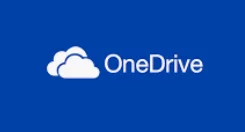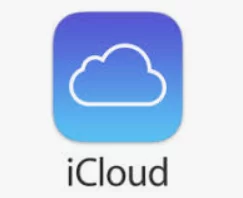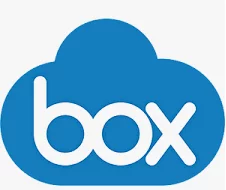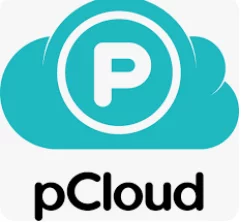The urging necessity for cloud storage solutions has grown exponentially in this digital epoch. Whether for personal or business use, cloud storage offers convenience, scalability, and accessibility to our valuable data. With numerous providers available, it can be challenging to choose the right one that suits your specific needs. In this blog, we will enlighten you about the leading cloud storage providers, examining their features, pricing, security, and performance to help you make an informed decision.
Top Cloud Storage Solution Providers
-
Dropbox
Dropbox is one of the pioneers in cloud storage solution, known for its user-friendly interface and seamless file synchronization across devices. It offers a free plan with limited storage space, along with various premium plans for individual and business users. Dropbox’s strength lies in its simplicity and integration with numerous third-party applications, making it ideal for collaboration and file sharing. However, some users have raised concerns about its pricing compared to its competitors.

Features:
- User-friendly interface and easy file synchronization across devices.
- Seamless integration with third-party applications for enhanced productivity and collaboration.
- Advanced features like file versioning and recovery options.
- Good collaboration tools for teams, including file commenting and sharing.
Pricing:
- Offers a free plan with limited storage space (2GB).
- Various premium plans are available, starting at $9.99 per month for 2TB storage.
Security:
- Offers advanced sharing controls, allowing users to set expiration dates for shared links and password protection.
- Provides granular permission settings, enabling users to control access at the folder and file level.
- Utilizes data centers with physical security measures, including 24/7 surveillance and restricted access.
Performance:
- Provides fast and reliable file syncing and sharing.
- Offers LAN sync for faster local network file transfers.
- Performance may vary depending on the user’s location and network conditions.
-
Google Drive
Google Drive, integrated with the Google Workspace suite, has gained significant popularity for its versatility and tight integration with other Google services. It offers generous free storage space, with the option to upgrade for additional storage at competitive prices. Google Drive excels in its collaboration features, allowing real-time editing, commenting, and file sharing among multiple users. This cloud storage solution provider’s search functionality is robust, making it easy to find files within a vast storage repository. However, some users have expressed concerns about privacy and data security, given Google’s data collection practices.

Features:
- Deep integration with the Google Workspace suite, allowing real-time collaboration on documents, spreadsheets, and presentations.
- Robust search functionality and advanced file organization features.
- Native support for a diverse range of file types, including Google Docs, Sheets, and Slides.
- Integration with additional Google services like Gmail and Google Photos.
Pricing:
- Provides 15GB of free storage.
- Additional storage plans range from $1.99 per month for 100GB to $299.99 per month for 30TB.
Security:
- Implements advanced phishing and malware detection to protect against malicious files.
- Provides data loss prevention (DLP) features for business users, allowing administrators to enforce policies and prevent the sharing of sensitive information.
- Offers the option for customers to manage their encryption keys using Google Cloud Key Management Service.
Performance:
- Offers fast and efficient file synchronization and collaboration.
- Utilizes Google’s infrastructure for reliable performance.
- Performance can be affected by internet connection quality and file size.
-
Microsoft OneDrive
As part of the Microsoft Office suite, OneDrive provides seamless integration with other Microsoft products, making it an attractive choice for Windows users and businesses utilizing Microsoft tools. It offers a generous amount of free storage, with additional storage available through subscription plans. OneDrive’s strength lies in its integration with Microsoft Office applications, allowing users to edit documents directly within the cloud storage interface. It also offers advanced collaboration features, making it a suitable choice for teamwork. However, some users have reported occasional syncing issues and limited third-party app integrations compared to other providers.

Features:
- Tight integration with Microsoft Office applications, enabling direct editing and collaboration on Office documents.
- Ample storage space and options to upgrade for additional storage.
- Advanced collaboration features like file sharing, commenting, and version history.
- Seamless integration with the Windows operating system and other Microsoft tools.
Pricing:
- Offers 5GB of free storage.
- Added storage plans start at $1.99 per month for 100GB and go up to $9.99 per month for 6TB.
Security:
- Utilizes SharePoint Online’s data loss prevention (DLP) policies to protect sensitive information.
- Offers Advanced Threat Protection (ATP) to detect and respond to advanced cyber threats.
- Provides customer-controlled encryption keys through Microsoft Azure Information Protection.
Performance:
- Provides efficient file syncing and collaboration within the Microsoft ecosystem.
- Offers reliable performance and integration with Microsoft Office applications.
- Performance may vary based on network conditions and file sizes.
-
Amazon S3
Amazon S3, group of the Amazon Web Services (AWS) ecosystem, offers a range of cloud storage plans suitable for individuals and businesses. It provides generous storage options with additional perks for Amazon Prime members. Amazon Drive is known for its reliability, speed, and scalability, leveraging the robust infrastructure of AWS. It also provides advanced security features, like two-factor authentication and encryption. However, the interface can be less intuitive compared to other providers, and its collaboration features are not as robust.

Features:
- Scalable storage options with generous storage capacities.
- High reliability and performance backed by the robust infrastructure of Amazon Web Services.
- Advanced security features, including encryption and two-factor authentication.
- Integration with other Amazon services like Prime Photos and Kindle.
Pricing:
- Provides 5GB of free storage for non-Prime members.
- Other storage plans start at $1.99 per month for 100GB and go up to $59.99 per year for 1TB (with Prime membership).
Security:
- Provides server-side encryption for data at rest using AES-256 encryption.
- Supports AWS Identity and Access Management (IAM) for fine-grained access controls and user permissions.
- Offers additional security features like Amazon Macie, which uses machine learning to detect sensitive data and potential security risks.
Performance:
- Offers high-performance file storage and retrieval.
- Leverages the robust infrastructure of Amazon Web Services for reliable performance.
- Speed can vary based on network conditions and file sizes.
-
Apple iCloud
Designed chiefly for Apple device users, iCloud offers seamless integration across Mac, iPhone, and iPad devices. It provides a limited amount of free storage, with options to upgrade for more space. iCloud is known for its simplicity and ease of use, automatically backing up photos, files, and app data across devices. It also offers advanced features like Find My iPhone and synchronization of app data. However, iCloud’s storage plans can be relatively expensive compared to other providers, and its collaboration features are not as robust.

Features:
- Seamless integration within the Apple ecosystem, synchronizing files, photos, and app data across Mac, iPhone, and iPad devices.
- Automatic backups of device data and settings.
- Find My iPhone feature for locating lost or stolen devices.
- Collaboration features are more limited compared to other providers.
Pricing:
- Offers 5GB of free storage.
- Additional storage plans range from $0.99 per month for 50GB and it goes to $9.99 per month for 2TB with additional facilities.
Security:
- Implements end-to-end encryption for certain types of data, such as iCloud Keychain, ensuring that only the user can access the encrypted data.
- Utilizes two-factor authentication and device-specific keys for secure access to iCloud services.
- Adheres to Apple’s strict privacy policies, with a focus on user data protection and transparency.
Performance:
- Provides seamless synchronization within the Apple ecosystem.
- Performance is generally reliable for Apple device users.
- Speed can be influenced by network conditions and file sizes.
-
Box
Box is a cloud storage provider that prioritizes security, compliance, and collaboration for businesses. It offers a range of plans suitable for small businesses, enterprises, and industries with strict compliance requirements. Box provides advanced security features, such as encryption, granular access controls, and data governance tools. Its collaboration features include file commenting, version history, and integration with various productivity apps. However, Box’s pricing can be higher compared to other providers, and the user interface may not be as intuitive for non-enterprise users.

Features:
- Focus on security and compliance, making it suitable for businesses with strict data governance requirements.
- Advanced security features like encryption, access controls, and data governance tools.
- Collaboration features such as file commenting, version history, and integration with productivity apps.
- Customizable user permissions and access controls.
Pricing:
- Provides a free personal plan with 10GB storage and a maximum file size limit of 250MB.
- Business plans are offered at $5 per user per month for 100GB storage and go up to enterprise-level plans.
Security:
- Provides granular access controls, allowing administrators to set permissions at the user, group, and folder levels.
- Supports integration with various identity providers, including Single Sign-On (SSO) options for centralized user authentication.
- Offers comprehensive auditing and reporting capabilities, enabling organizations to monitor user activities and maintain compliance.
Performance:
- Offers reliable performance for file storage and collaboration.
- Performance can vary based on network conditions and file sizes.
- Provides scalable storage options suitable for businesses.
-
Mega
Mega is a cloud storage provider renowned for its robust security measures and focus on end-to-end encryption. With a user-friendly interface and a strong emphasis on privacy, Mega offers individuals and businesses a secure platform for storing and sharing their files. With features like real-time collaboration and secure communication, Mega ensures that user data remains protected while providing a seamless and intuitive cloud storage experience.

Features:
- Provides end-to-end encryption for files, ensuring only users can access their data.
- Offers a user-friendly interface with drag-and-drop file uploads.
- Collaboration features include real-time file sharing and chat functionality.
- Secure communication through encrypted messaging and video calls.
Pricing:
- Offers a free plan with 20GB of storage and limited transfer limits.
- Premium plans range from €4.99 per month for 400GB of storage to €29.99 per month for 16TB of storage.
Security:
- Implements end-to-end encryption, meaning files are encrypted on the user’s device before being uploaded.
- Provides user-controlled encryption keys for added security.
- Offers two-factor authentication and secure communication features.
Performance:
- Provides fast and efficient file transfers with its own infrastructure.
- Performance can vary depending on network conditions and user location.
-
pCloud
iCloud is a versatile cloud storage provider that ministers to both personal and business users. With a range of features, such as client-side encryption, file versioning, and seamless integration with popular productivity apps, pCloud offers a comprehensive solution for storing, accessing, and collaborating on files. With an emphasis on data security and privacy, pCloud provides users with secure and reliable cloud storage options, empowering them to manage their files efficiently and effectively.

Features:
- Offers client-side encryption, giving users full control over their data.
- File versioning and file sharing features.
- Integration with third-party apps like Microsoft Office Online and Adobe Creative Cloud.
- Offline access to files with automatic synchronization.
Pricing:
- Free plan with 10GB of storage and limited features.
- Premium plans start at $3.99 per month for 500GB of storage.
- Lifetime plans are available for a one-time payment.
Security:
- Provides client-side encryption with user-controlled encryption keys.
- Two-factor authentication for account security.
- Data is stored in supremely secure data centers with redundant storage.
Performance:
- Offers fast file transfers and synchronization.
- Employs a global network of servers for optimal performance.
- Performance can vary based on network conditions and file sizes.
Conclusion
Choosing the right cloud storage solution depends on your specific needs, whether for personal or business use. Each of the leading providers has its strengths and weaknesses, which must be considered when making a decision. Dropbox excels in simplicity and integration, while Google Drive offers versatility and strong collaboration features. OneDrive provides seamless integration with Microsoft Office tools, and Amazon Drive boasts reliability and scalability. iCloud offers seamless integration within the Apple ecosystem, and Box focuses on security and compliance for businesses.
Before taking your final call, consider factors such as storage space, pricing, collaboration features, integration with other tools, security measures, and overall user experience. It’s also essential to evaluate your specific requirements and determine which provider aligns best with your needs.
FAQs
Are these cloud storage providers secure?
Yes, the leading cloud storage providers implement security measures such as encryption, two-factor authentication, and data redundancy to ensure the safety of your files. However, the level of security may vary, so it’s crucial to attentively review each provider’s security features and determine which one meets your requirements.
Can I access my files offline with these cloud storage solutions?
Most cloud storage providers offer offline access to files by syncing them to your devices. However, the specific functionality may vary, so it’s advisable to check the features offered by each provider.
Can I share files with others using these cloud storage solutions?
Yes, all the leading cloud storage providers allow file sharing with others. They offer collaboration features such as file commenting, real-time editing, and permission controls to facilitate teamwork and file sharing.
Are there any limitations on file size or type?
Some cloud storage providers impose limitations on file size and supported file types. It’s essential to check the specific restrictions imposed by each provider to ensure compatibility with your file storage needs.
Can I migrate my files from one cloud storage provider to another?
Yes, it is usually possible to migrate your files and data from one cloud storage provider to another. However, the process may vary in complexity, and it’s recommended to review the migration options and tools provided by each provider.
Can I access cloud storage from different devices and platforms?
Yes, cloud storage solutions are designed to be accessible from various devices and platforms. They typically offer apps for desktop, web, and mobile devices, allowing you to access your files from anywhere with an internet connection.



